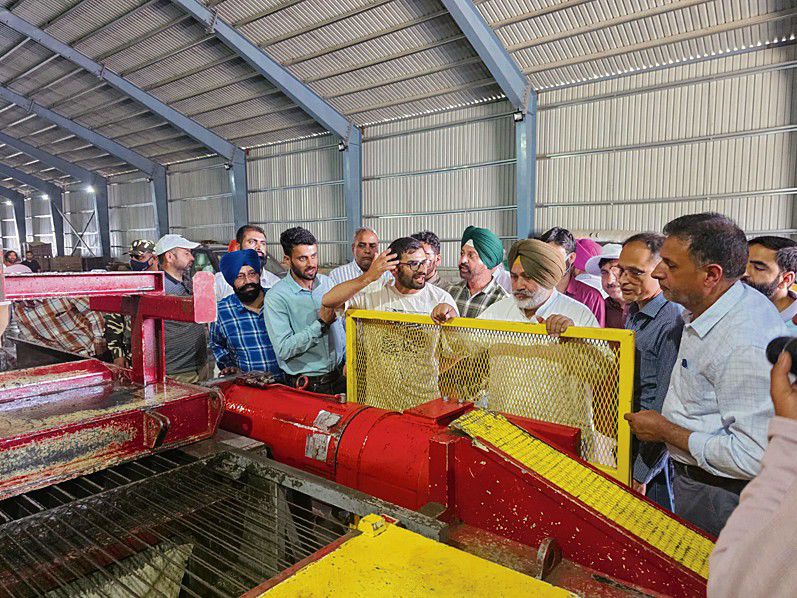Punjab farmers’ delegation led by Jouramajra visits J&K to learn about fruit, flower varieties
Chandigarh, June 29
A delegation of farmers, led by Punjab Horticulture Minister Chetan Singh Jouramajra, undertook a five-day visit of Jammu and Kashmir with the aim of learning about potential fruit and flower crops, mulberry varieties for silk production, and new techniques for Punjab’s Shivalik foothills and Kandi area belt.
To expose state’s farmers to alternative horticultural practices and crops, potentially diversifying and improving the state’s agricultural output, the delegation gathered diverse information while visiting horticulture-related centres, including the Centre of Excellence for Fruits (Zawoora, Srinagar), Sher-e-Kashmir University of Agricultural Sciences and Technology (Kashmir), Saffron Park (Dussu, Pulwama), Central Institute for Temperate Horticulture, Model High-Density Apple Orchard (Srinagar), Potato Farm (Gulmarg), Industrial Growth Centre (Lassipora) and Central Sericulture Research and Training Institute, Central Silk Board (Pampore).
During the visit, Horticulture Department of Srinagar (Jammu and Kashmir) shared vital information about cultivating horticultural crops relevant to Punjab using new technologies and improving future horticulture standards in the state. The officials also provided details on low-chilling varieties of peer, peach, plum and apple as well as establishing silk reeling units.
Addressing these events, Horticulture Minister Chetan Singh Jouramajra said that plans are being made to cultivate new potential fruits and flowers in the Shivalik foothills and Kandi area of Punjab as these areas have a cooler climate compared to the rest of the state. He expressed hope that assistance could be sought from Jammu and Kashmir for growing mulberry varieties and learning new techniques of silk production.
The minister and officials also held meetings with representatives of various industrial growth centres to bring cold storage and processing industries to Punjab, familiarising them with the state’s favourable environment.









